Product compliance can be expensive. Consultants and lab testing services can cost thousands of dollars. As such, suppliers have an incentive to cut corners by either creating or buying fake lab test reports and product certificates – for a fraction of what it would cost to do it the right way.
As I write this, we’re in the midst of an enormous medical supplies gold rush. Suppliers and buyers alike are desperate the capitalize on the only booming industry in existence today.
We do a lot of supplier screenings involving document checks. Never before have I seen so many bogus test reports, “CE certificates” and other deceptive documents. That being said, I’ve dealt with this problem for almost ten years now – so it’s certainly not new.
Content Overview

FREE CONSULTATION CALL (US, EU & UK)
- Request a free 30-minute call with Ivan Malloci to learn how we can help you with:
- Find product requirements
- Certification and labeling
- Lab testing
Given the situation, I thought it was about time that I shared what I have experienced when it comes to fake test reports and product certificates. Hopefully, this article will help you avoid placing non-compliant and potentially dangerous products on the market – and subsequent economic ruin.
What can happen if I import products without valid compliance documents?
Lab testing is mandatory for a wide range of products in the United States and the EU, including children’s products, medical supplies, electronics, and PPE. Here are some scenarios that may play out if you “get caught” with fake test reports and/or certification:
- Products seized by the customs authorities
- Fines or forced recall ordered by national market surveillance authorities
- Rejected product listing on Amazon
In a worst-case scenario, you may also be liable for death, injury or property damage.
Keep in mind that it’s always the importer that ends up on the losing end. Ultimately, it’s in your interest as an importer to ensure that your products are safe, tested and correctly documented.
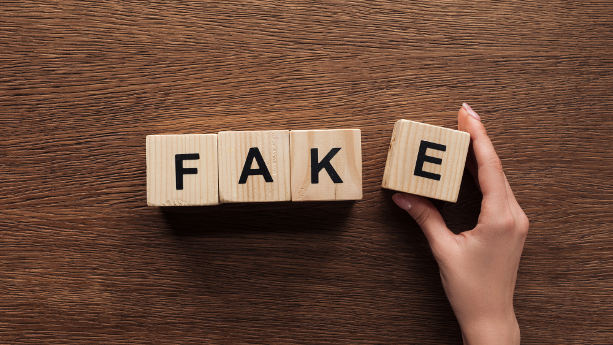
Why suppliers provide fake test reports and certificates
Manufacturers in Asia often see product compliance paperwork as a mere bureaucratic hurdle, rather than a serious concern for their business. If you ask me, this also makes sense, as it’s ultimately the importer’s responsibility to ensure that the product is compliant. Ultimately, it’s the importer that will face fines, forced recall or worse – no the supplier.
Yet, many suppliers have awoken to the fact that buyers start to ask for test reports, and compliance documents. After losing an order or two, some of them might decide that it’s about time to do something about it.
So they reach out to testing companies online to ask for prices to get their product tested and certified. Assuming they contact one of the established players, such as Intertek or SGS, they’ll quickly realize that getting their products tested the right way is far too expensive.
I totally agree. It’s not viable for a supplier to finance the lab testing of products that customers may or may not buy at some point.
So what do they do instead? They go to a company that can provide a lab test report or “product certificate” at a far lower cost – or creates one themselves using Word or Photoshop. Whether the test report is real or not doesn’t really matter – most buyers won’t care anyway.
Why buyers often accept fake documentation
I’ve spent far too many hours of my life arguing with business people about product regulations. Sometimes they even get hostile – as if it was I who wrote the directives and regulations only for the sake of stirring trouble.
Many buyers also see product compliance as a roadblock. Something to “get around”.
It’s therefore not surprising that many importers accept any PDF file or jpg titled “CERTIFICATE” that their supplier throws at them.
Ultimately, they just want to get down to business.
Test Reports
Test reports provide information about product lab tests carried out on a certain product, according to a set of standards or rules. Here are some examples:
- Electrical safety test reports
- Chemicals and heavy metals test reports
- Toy safety test reports
- Flammability test reports
Note that a test report is only valid for a certain product, according to the standards listed in the report. Test reports are used as the basis of demonstrating that a certain product is compliant.
Altered test reports
This is perhaps the oldest trick in the book. Take an existing lab test report you found online or obtained a few years ago, and change the supplier name and product model in photoshop.
All of a sudden you have a lab test report that looks perfectly legit.
I remember the first time this happened to me. I think it was back in 2012, and we were working on an order of PVC rolls heading for Europe. The supplier promised to cover the REACH testing fee and sent us a lab test report from SGS a few days before the shipment date.
The first thing we did was to send the test report PDF to SGS for verification, who quickly confirmed that the test report was a forgery. There was indeed a test report with that same number – issued the same week – but for a completely different material.
I quickly realized that the supplier had altered a legit test report, by switching out the product. Apparently, they had booked a lab test for a different production run and intended to save themselves a few hundred dollars by doing a “two for one” deal.
We confronted the supplier later that day, who only this to say; “Oh, I didn’t know you could verify lab test reports”.
Shortly thereafter, the factory booked another lab test and the material passed.
Tips
- Always verify lab test reports
- Compare the data on the test reports to the data in the issuing company’s database
Fake test reports
Why pay hundreds or even thousands of dollars to Intertek or QIMA when you can just make your own test report yourself? Or, at the very least, buy a seemingly legit test report from some bogus company that nobody ever heard of?
To be honest, I think some suppliers buy lab test reports without realizing the danger they put their buyers and end customers into. As I said, many of them see it as mere paperwork needed to get the order.
Keep in mind that customs authorities and national market surveillance authorities do know the difference between a ‘real’ test report and one issuing by a bogus company. Don’t assume that they will accept anything at face value.
Tips
- Check if the issuing testing company is accredited in the EU or USA (e.g. on CPSC accepted testing companies list)
- Only accept test reports from established companies (e.g. Intertek, QIMA and SGS)
Test reports from other manufacturers
While not necessarily fake, test reports from completely unrelated companies are equally worthless and dangerous to buyers. A lab test report only has value if it’s valid for the product you buy from that same supplier. That said, it’s not uncommon for a supplier to send test reports owned by subcontractors or unrelated manufacturers when buyers ask for compliance documents.
They often claim that the test reports come from a ‘partner factory’ or something similar.
However, unless the test report can be linked to your supplier, it’s useless – both for the sake of assessing their compliance track record and also as a support document for your specific product.
I know for a fact that both national surveillance authorities and Amazon carefully compare the supplier name on the test report to other documentation, such as the commercial invoice, to establish if it’s applicable to the product.
Tips
- Always check the supplier name on the test report
Product Certificates
Lo and behold, the mighty product certificate that makes your compliance headache go away in an instant. These days, it seems that every supplier has them. That would be a great thing if most of them were not entirely useless and outright dangerous.
So, what is a product certificate? Most product certificates are self-issued compliance statements, essentially stating that a certain product, sold by a certain company, confirms to a set of standards and regulations.
Examples include the Declaration of Conformity in the EU and the Children’s Product Certificate in the United States. It’s also worth noting that most “product certificates” are actually supposed to be issued by the importer (or domestic manufacturers) – not foreign suppliers.
Recommended Articles
- Product Certification Requirements in the United States
- Product Certification Requirements in the European Union
Certificate of Conformity/CE Certificates
Commonly referred to as a “CE certificate”, and almost always issued by an unknown bogus company. Buyers love to think that these so-called CE certificates serve as substitutes for test reports and other documentation. That is, however, not the case.
These CE certificates often state that they are based on lab test results and a review of the technical documentation – but the supplier and issuing company can never provide additional documentation supporting the claims made in these elusive and mysterious “CE certificates”.
My conclusion is therefore that the documents are not based on any product testing or evaluation whatsoever, but solely created for the sake of tricking buyers – and possibly also the suppliers paying for them in the first place.
This is what the European Safety Federation has to say about it:
Unfortunately, we (the European Safety Federation = trade association of suppliers of PPE) are informed by different sources about ‘certificates’ or other documents used as basis for CE marking of PPE (including FFP2/FFP3 masks and eye protection), while these ‘certificates’ have no legal value and can not be used as conclusion of conformity assessment. It is not clear if these documents have actually been issued by the organisations mentioned themselves or if they are fake. ESF is not accusing them of doing so, we only want to inform and warn about these documents.
Compliance Assessment Certificates
This category is similar to the “CE certificates” described above. Compliance assessment certificates are official-looking documents claiming to ‘certify’ the product according to certain regulations or standards.
These documents normally include a list of regulations and standards which the assessment is based on. That said, such documents can rarely be provided. Even if they do have such documents, a compliance assessment report or certificate (they are often titled as certificates) it would still not serve as a replacement or substitute for the actual documentation.
Fake ISO/GMP Certificates
Quality management system and Good Manufacturing Practice (GMP) certification is required when importing certain products, such as medical supplies, PPE and food contact materials. In recent weeks, we have seen a number of fake ISO and GMP documents – either complete forgeries or certificates with altered company names.



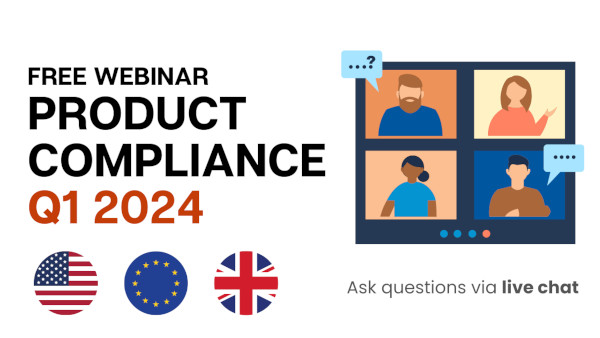
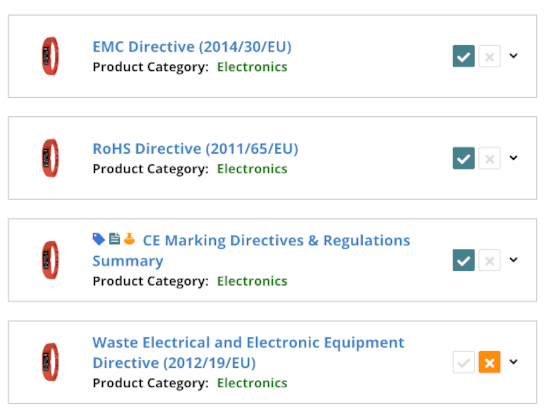



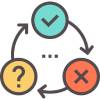
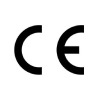
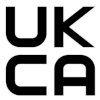






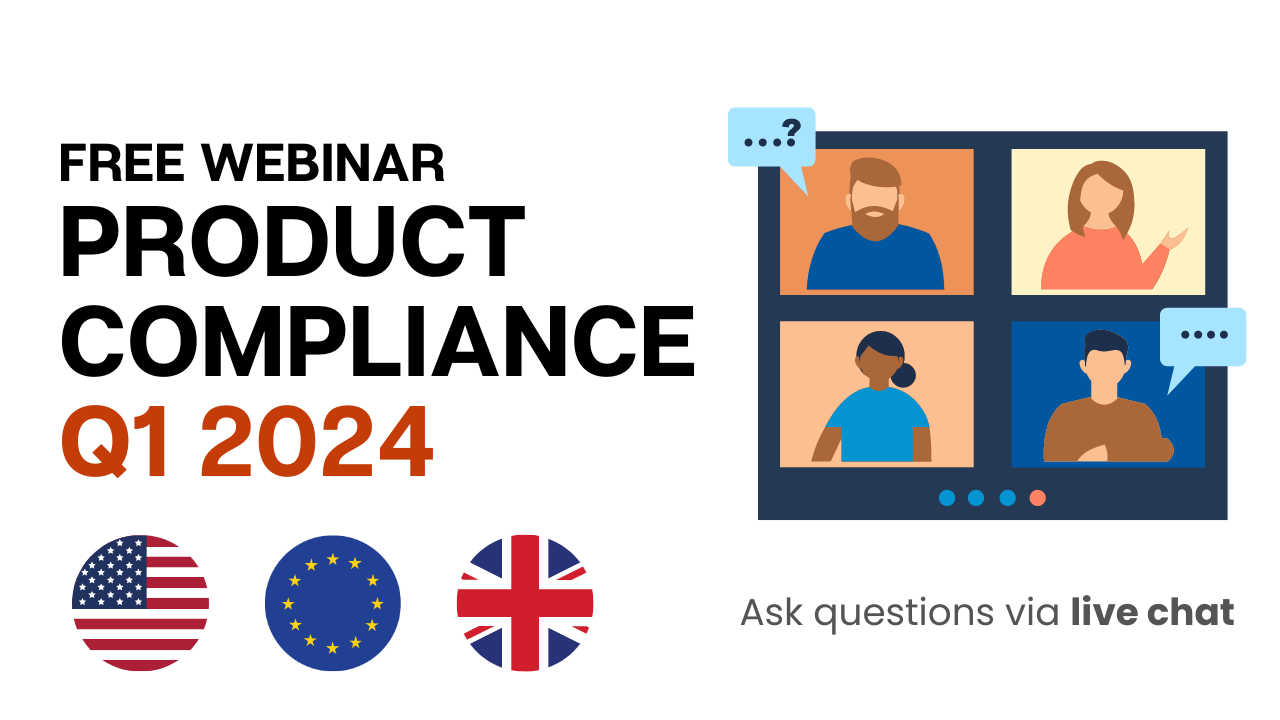

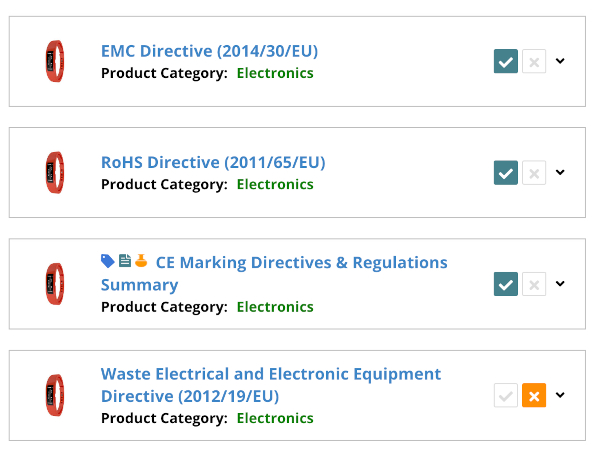

Hi Fredrik Gronkvist thanks for sharing some of your knowledge. Do you recommend and labs in the US that can test 2 products to determine whether or not they are the same or not.
Hi Imran,
I need to better understand the context. If they have the same materials, or something else?
having found a seller who lies about been manufacturer and they are only traders, they lied about their certification, twinning verification web pages, using descriptions of another certification and trying to pass it by another product ( this is highly sensitive machines , they are medical oxigen plants for covid aid oxigens ) where can I report it, my country govermenet offitials are aware but they are been brived under the table, is it such a thing as a sanction if a company issues fake certificates , where can we go about it.
Regards
Hi Fredrik, great article! Richard from Malaysia here. We assist our importers to purchase from legit manufacturers in Malaysia and some parts of Asia. Its a Gold Rush now and I have personally encountered many fake purchasers,fake LOI,POF and fake company profiles.Their goal is to find out our Batch & Lot numbers provided to the end buyers from the manufacturer so that they could get our legit documents and resell to other buyers in the market. Once bitten and twice shy, our funneling/filtering process of legit importers is quite a handful at some point, some has even resorted to use legal letter of attestation to get info from us.
While this industry’s legitimate players are available,it is my job to find out if they are to complete the deal and ensure everything is smooth until the goods are finally taken out from the warehouse…phew that being said, i think i need a vacation in a quiet place once my clients has taken their stock. Take care and thank you!
Hello Richard,
Thank you!
Yes, it’s the wild west (or east?) out there
For how long are product test reports valid in the EU?
Hi Victoria,
Normally test reports don’t have an expiry date.
Thanks. The information very helpful.
Hi Fredrik,
What happened to your story after your supplier got verify for the PVC roll compliance? Were you ever afraid that your supplier would screw you over for calling them out on their forgery? Currently, I have the same situation with my supplier where SGS stated the test reports are invalid. This supplier has a good 9 year relationship in Alibaba. I don’t get it. Does that mean other importers who went with this supplier got screw? or am the only I who is getting played? Anyway, your contents are the best!
Hi Alvin,
They faked the test report so I didn’t give a damn what they were thinking about me calling them out. Bending over backward for a supplier only results in them trying to screw you over even more.
We pushed back, they got the test done, it passed, and that was the end of the story.
As for your situation… impossible to say without looking at the test report. Invalid can mean a lot of things.
This is so helpful. I am just starting out on my importing journey and for some crazy reason I have chosen consumer electronics as my “niche” I want to source high quality, safe and compliant products for my customers. I sell on eBay and I am also setting up a Shopify store to sell my products. After reading this I have just reviewed all my RFQ’s in Alibaba and gone through them with a fine tooth comb and requested CE and ROHS certificates and not one of the 10 suppliers can produce these documents. At best, they have sent me a Word document with the words draft plastered across the middle, no signatures or anything official. I am now spending more time on my supplier due diligence! I have also read several of your other articles and the information and value you provide is priceless, thank you so much!
Hello Rob,
Yes, it’s the state of things. The only workable approach is to get each product lab tested and correctly documented. Using supplier test reports is rarely an option.
Really like the blog post. I think it showed the reality of many importers today. Thanks!
Hopefully, this will serve a wakeup call for many importers.